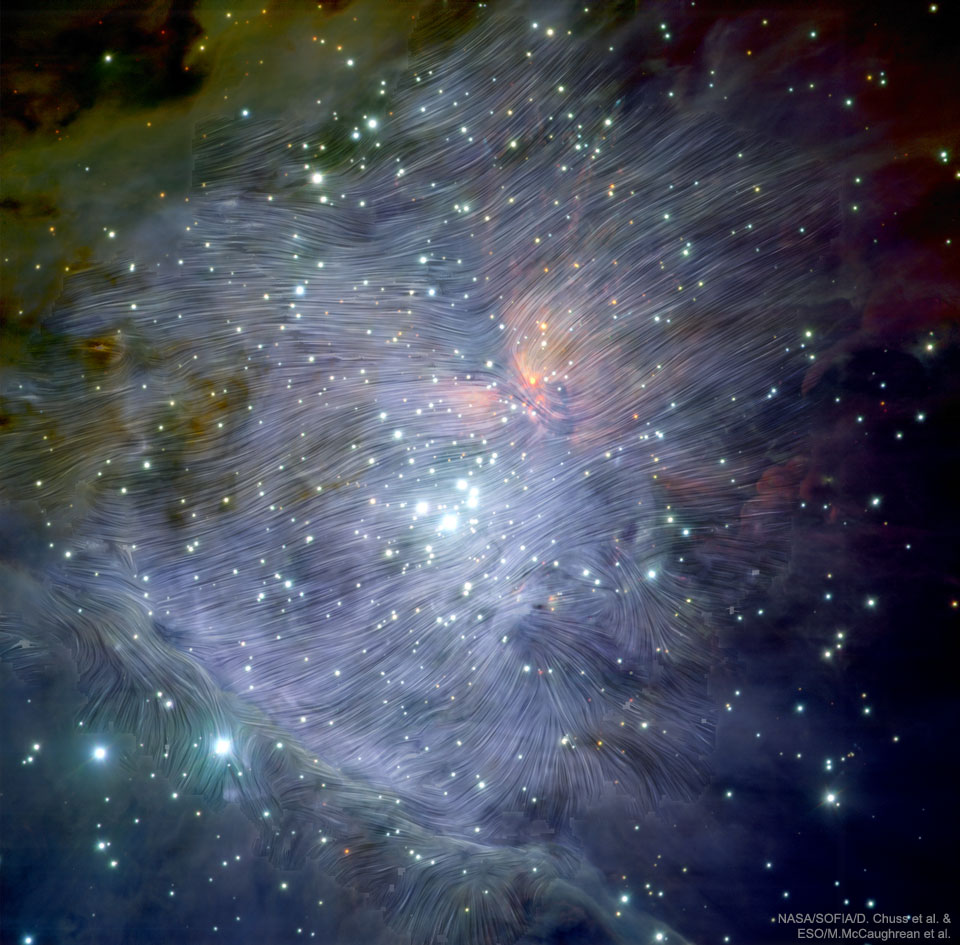Astronomy Picture of the Day
Discover the cosmos! Each day a different image or photograph of our fascinating universe is featured, along with a brief explanation written by a professional astronomer.
Image Credit & Copyright: NASA, SOFIA, D. Chuss et al. & ESO, M. McCaughrean et al.
Explanation: Can magnetism affect how stars form? Recent analysis of Orion data from the HAWC+ instrument on the airborne SOFIA observatory indicate that, at times, it can. HAWC+ is able to measure the polarization of far-infrared light which can reveal the alignment of dust grains by expansive ambient magnetic fields. In the featured image, these magnetic fields are shown as curvy lines superposed on an infrared image of the Orion Nebula taken by a Very Large Telescope in Chile. Orion's Kleinmann-Low Nebula is visible slightly to the upper right of the image center, while bright stars of the Trapezium cluster are visible just to the lower left of center. The Orion Nebula at about l300 light years distant is the nearest major star formation region to the Sun.
Authors & editors: Robert Nemiroff (MTU) & Jerry Bonnell (UMCP)
NASA Official: Phillip Newman Specific rights apply.
NASA Web Privacy Policy and Important Notices
A service of: ASD at NASA / GSFC
& Michigan Tech. U.
This is an automated email. If you notice any problems, just send me a note at gtracy@gmail.com. You can add and remove email addresses to this distribution list here, https://apodemail.org.Unsubscribe

No comments:
Post a Comment